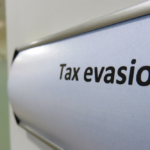What is the emergency tax code? This is a common question when you’re issued a different tax code from your regular one. There’s no doubt that emergency tax codes can be confusing, especially if you haven’t been issued one before. To learn more about the emergency tax code and why you may receive one, continue reading our helpful guide.
What is the Emergency Tax Code?
So, what is the emergency tax code? An emergency tax code is a temporary code that’s issued until HRMC finds the relevant tax code to put you on. Emergency codes are common, but can cause some nuances.
If you’re placed on an emergency tax code, you may be provided less tax-free allowance – but don’t worry, you’ll likely be refunded when the correct code is applied.
Why are Emergency Tax Codes Issued? Common Reasons
There are several reasons why you may have been issued an emergency tax code, including:
- Starting a new job, and HMRC hasn’t received the correct income details
- Beginning work with an employer after being self-employed
- Receiving company benefits or the State Pension
- Working more than one job
- Changing from working full-time to part-time
- Your employer has used the wrong tax code for you
If you’ve experienced any of these circumstances recently, we advise checking if HMRC have put you on an emergency tax code.
What code is the Emergency Tax Code?
The emergency tax code is a temporary code ending in either W1, M1, or X. For example, if your regular tax code is 1257L and you were placed on an emergency tax code, it would then appear as 1257L W1, 1257L M1, or 1257L X.
Have You Been Issued an Emergency Tax Code?
There are two main ways to know if you’ve been issued an emergency tax code:
- You’ve noticed you’ve paid more tax than usual
- Your tax code on your payslip shows W1, M1, or X
If you notice that you’re on an emergency tax code, don’t panic! Although receiving an emergency tax code can be frustrating in some aspects and difficult to understand, HMRC will update your tax code once they receive the correct details or until you have paid the right amount of tax.
Can You be Issued an Emergency Tax Code on Pension Income?
Yes, you can be issued an emergency tax code on your pension income. Common reasons for being issued an emergency tax code on your pension income include:
- The incorrect tax code is being used by your pension provider
- Your initial tax code didn’t correctly reflect your State Pension
- Your taxable income has decreased
If you suspect that you’ve been issued an emergency tax code on your pension income, contact HMRC and ask them to check your personal tax account to confirm if your code has been changed.
Avoiding Emergency Tax Codes
Can you avoid emergency tax codes? Generally, you can’t avoid emergency tax codes in the UK. We understand that dealing with emergency tax codes can be complex and inconvenient. However, there are a few ways you can prevent being placed on one:
- Provide accurate personal details
- Update details when employment changes
- Present your P45 as soon as you start a new job
- Check your details regularly to ensure they’re correct
- Contact HMRC if you think you may be put on an emergency tax code
What to Do After Receiving an Emergency Tax Code
Have you received an emergency tax code? Let’s find out what you can do based on three common reasons for being given the wrong code.
1 – Starting a New Job
If you’ve recently started a new job, HMRC will require updated income information. Start by giving your new employer your P45 from your previous job. If you don’t have a P45, your employer should provide a form to fill out the necessary details regarding your past employment.
2 – Starting to Work With an Employer After Being Self-Employed
The same process as starting a new job can be followed. Your new employer should provide a form to fill out the necessary details regarding your self-employment. A P45 won’t be needed, as self-employed individuals don’t require them.
3 – Receiving Company Benefits or the State Pension
Check your tax code is correct, ensuring it states the company benefit or your State Pension. If they aren’t included, it means the information is incorrect, and it’ll be a likely reason why you’ve been issued an emergency tax code. Contact HMRC to update your details.
How Long Do Emergency Tax Codes Last?
Emergency tax codes are temporary, typically lasting for 35 days. Once HMRC successfully updates your tax code to the correct one after being given your updated details, your emergency tax code is usually removed. However, the process differs depending on whether you owe any tax.
Can You Claim Emergency Tax Back?
Yes, you can claim back emergency tax by following these simple steps:
- Use your P800 to find out whether you’re due a refund
- Contact HMRC to see if you’re able to claim tax back
- Wait for HMRC to send a letter confirming your claim
- If your claim is confirmed, wait for a bank transfer or cheque from HMRC
- Check that the refund is correct in line with your personal tax account records
What is a P800?
A P800 is a letter sent from HMRC containing an end-of-year tax calculation. You will receive this letter if you’ve either underpaid or overpaid tax. It’s important to check your P800 to ensure all the information is correct. If it is, then you don’t need to contact HMRC.
What is Required to Claim Emergency Tax Back?
Before approaching HMRC, it’s important to have essential details to hand, including:
- Full name
- Address
- Date of birth
- National Insurance Number
- Employer
- Pension provider
- Estimate of your earnings
If you fail to provide this information, you might not be able to receive a refund.
How Long Does it Take to Claim Emergency Tax Back?
It can take 8 weeks or more to receive a refund claim for emergency tax in the UK, depending on whether you’re reclaiming work-related earnings or earnings from your State Pension. The method of claiming can also impact the timeframe, as online claims are typically processed faster than paper claims.
Avoid Emergency Tax Codes with Our Help
There are minimal ways to avoid receiving an emergency tax code. However, keeping up to date with tax payments and notifying HMRC of changes in your circumstances helps lower the chances of being issued with one. At LJS Accounting Services, we offer tailored tax services to help clients complete tax returns and plan financial affairs accurately.
We can help you figure out how much tax they must pay and when. Allow our dedicated and friendly team of professionals to assist you today, helping reduce the chance of being issued an emergency tax code by HMRC.
Contact us to find out more about how we can help you.

Keli Evans, Director at LJS Accounting Services, excels in taxation and statutory accounts. With a focus on strong client relationships, she leads a diverse portfolio, overseeing vital financial aspects like VAT, payroll, pensions, and taxation with a holistic and committed approach.







